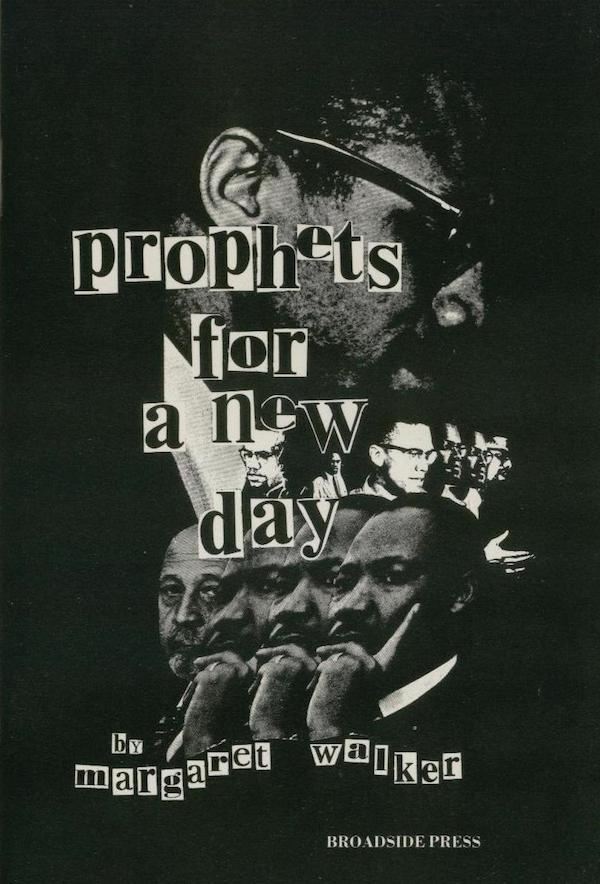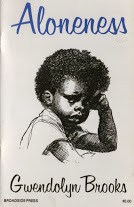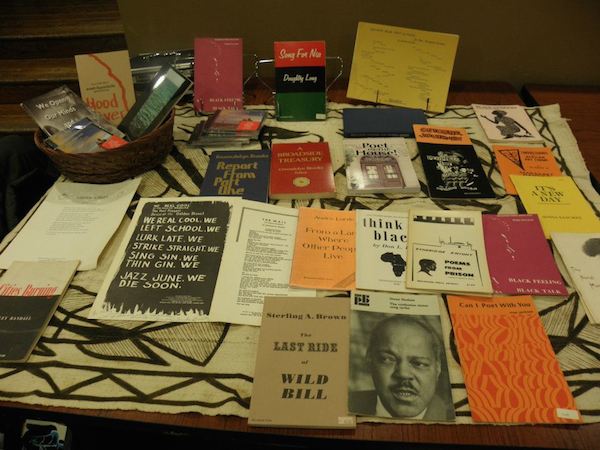
A rich library of African-American poetry goes digital
By Julie Edgar, Detroit-based freelance writer The Knight Arts Challenge Detroit is now accepting applications for the best local ideas for the arts. Here, writer Julie Edgar catches up with past winner Broadside Press.
Amid the social upheaval of the 1960s, when protests were brutally quashed, Detroit’s Broadside Press was quietly turning out the works of African-American poets who were telling universal and particular truths that re-shaped the way people thought of themselves and each other.
Lots of works, in fact.
The good thing is that they’re safely archived in two university libraries, recognized as an important historic and artistic record of the culture’s most astute observers. They include works by poets like Gwendolyn Brooks, Nikki Giovanni, Etheridge Knight and Sonia Sanchez. Less well-known poets, like Margaret Walker and Dudley Randall, the founder of Broadside 50 years ago, are a part of the collection too.
A Knight Arts Challenge grant will enable Broadside, the nation’s oldest African-American publishing house, to digitize and share the vast store of poetry.
“Just about everything is out of print and people constantly want to see it. We get requests from universities all over the world that want to reach back into the history,’’ said Chris Rutherford, chairman of Broadside’s board of directors. He works as a program manager at the University of Michigan’s Center for Educational Outreach.

With the $20,000 grant and $20,000 in matching funds, Broadside is about to start the arduous task of copying and cataloguing each and every page. Rutherford is working with the University of Michigan on the details, such as how the books and broadsides will get from Ann Arbor to wherever Broadside will set up the scanning apparatus. He’s also checking out the archives at the University of Massachusetts, which apparently has materials from Broadside. He has no idea why, but a Google search turned up the information.
The grant will also enable Broadside to set up an ecommerce site to sell the work.
An aside: a “broadside” is a single, 8 ½-by-11 sheet of paper. Rutherford explained that Randall, on a trip to the former Soviet Union, liked how his creative comrades-in-arms printed literature. It was a cheap way to make quality literature available to the masses, and so Broadside used it for some of its collection.
Whatever the medium, what it did in its early years marked Detroit as a center of the Black Arts Movement. It was, says Rutherford, as innovative in a civil rights framework as Motown was to the music business.
“Dudley sought to give voice to the voiceless and did it in a fashion nobody else was doing,” Rutherford says. “He made it a point to expose this wealth of literature that existed in the African-American community that was largely ignored by larger publishers in the U.S.”
It happens that Broadside marks its 50th birthday this year, so the plan is to finish the first phase of digitization and the ecommerce website by a September celebration.
Rutherford sees Broadside’s legacy as bridging a generational divide, showing young people the origins of spoken-word poetry, rap and poetry slams. More importantly, he hopes that exposure to the work inspires them to also speak truth to power.
“Broadside gives them a place to better understand the challenges they daily face. If this person can do it in 1965, they can do it,” says Rutherford.

Recent Content
-
Artsarticle ·
-
Artsarticle ·
-
Artsarticle ·
